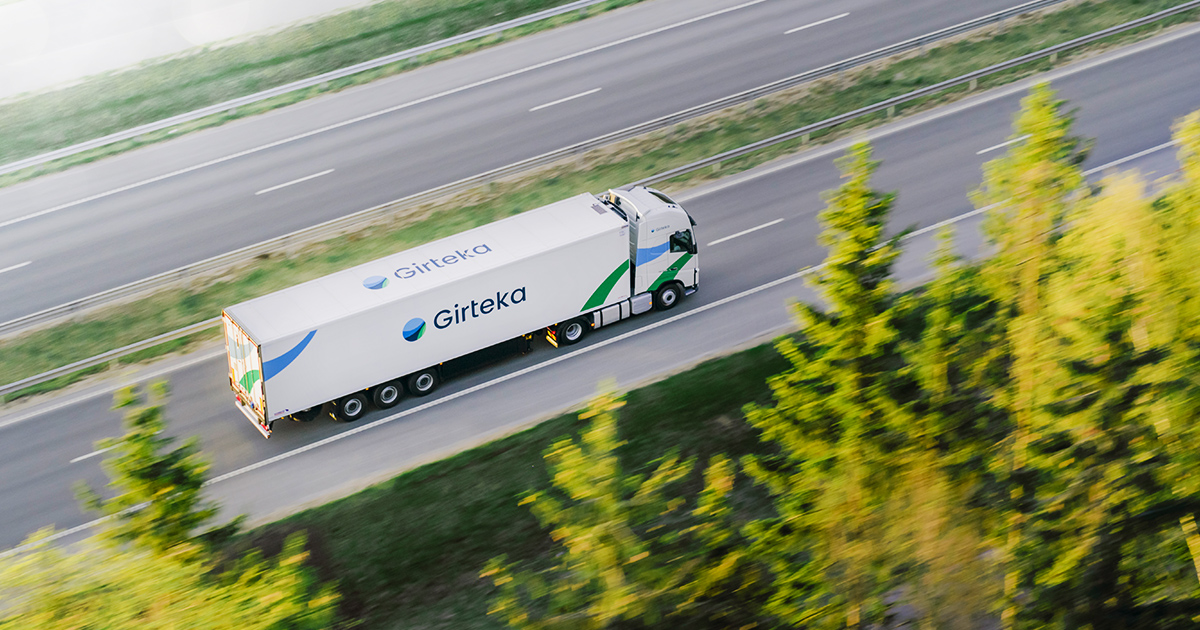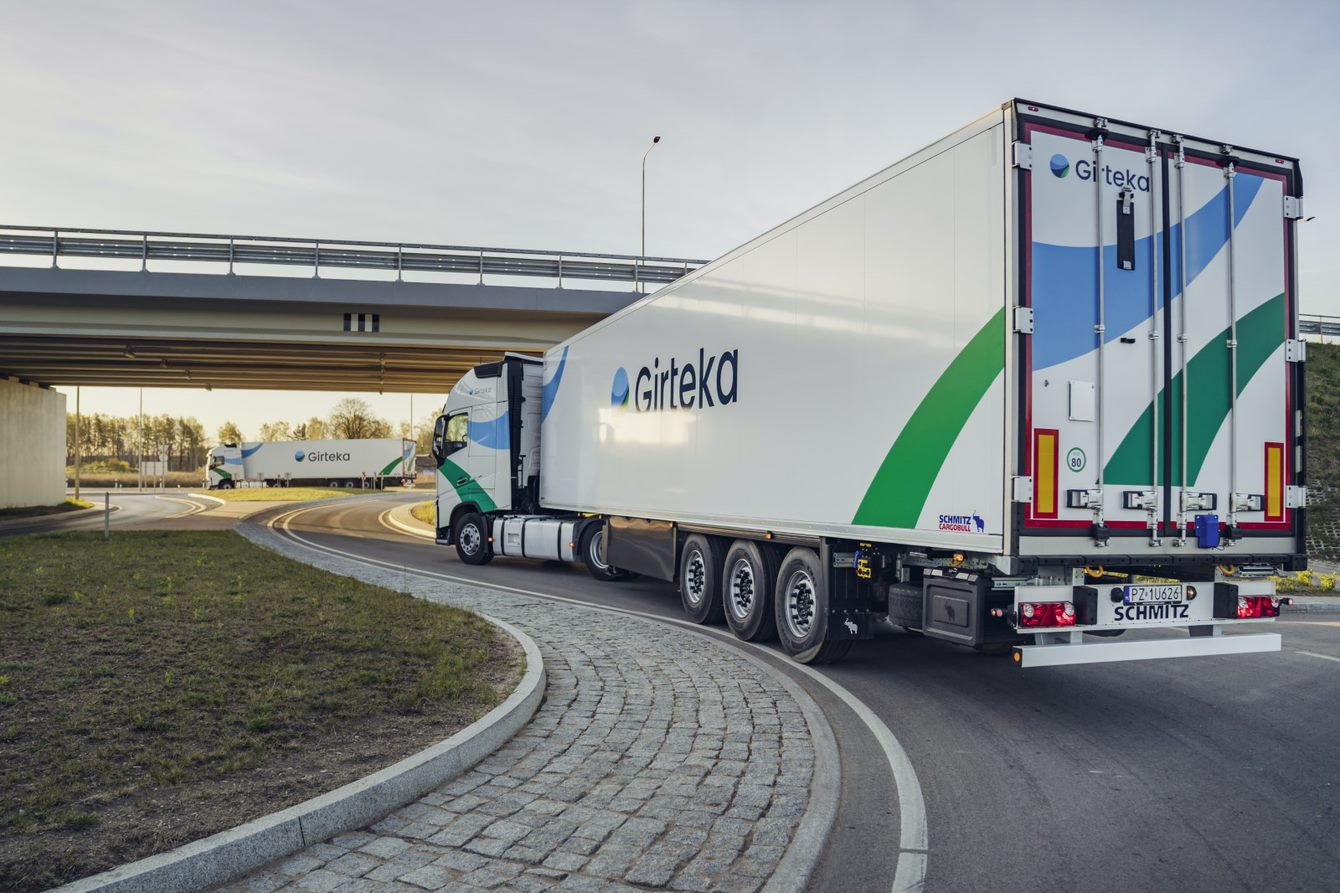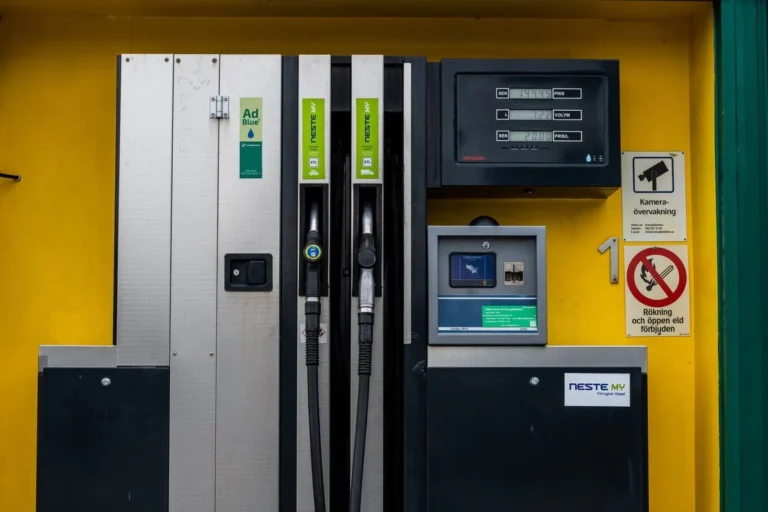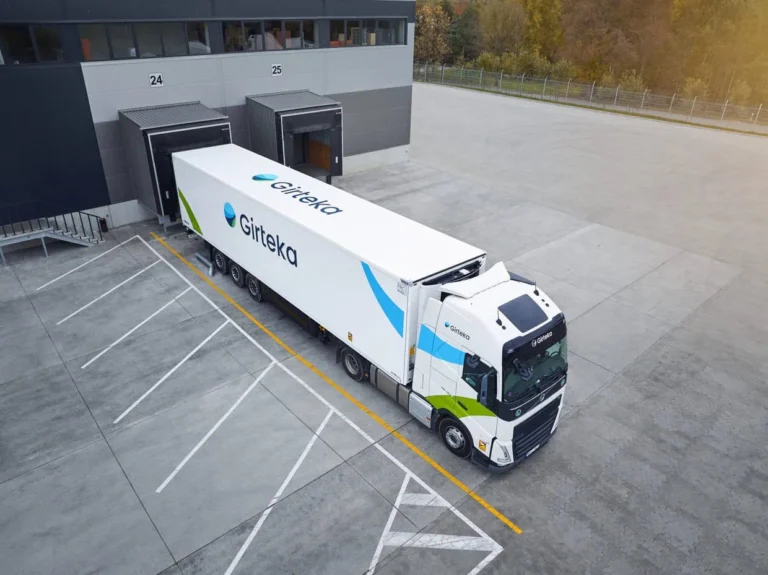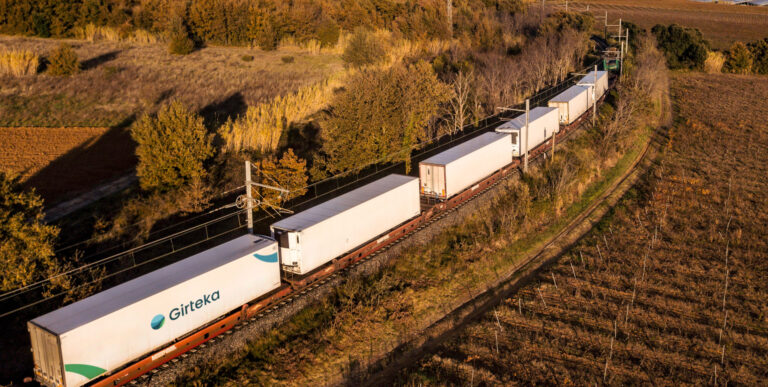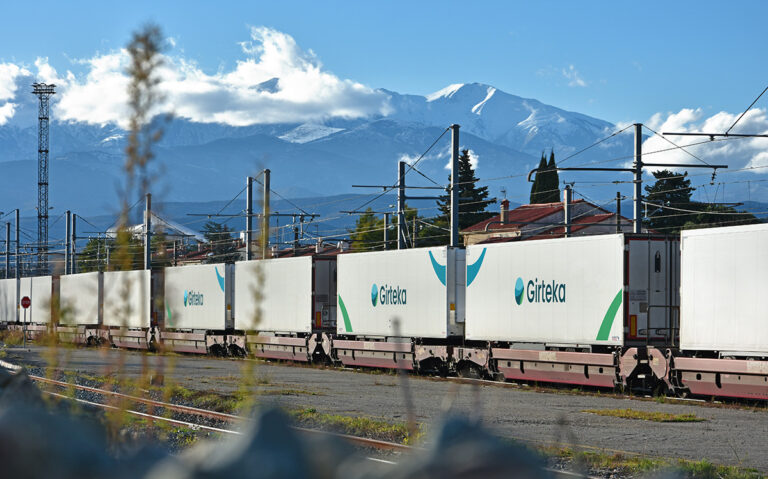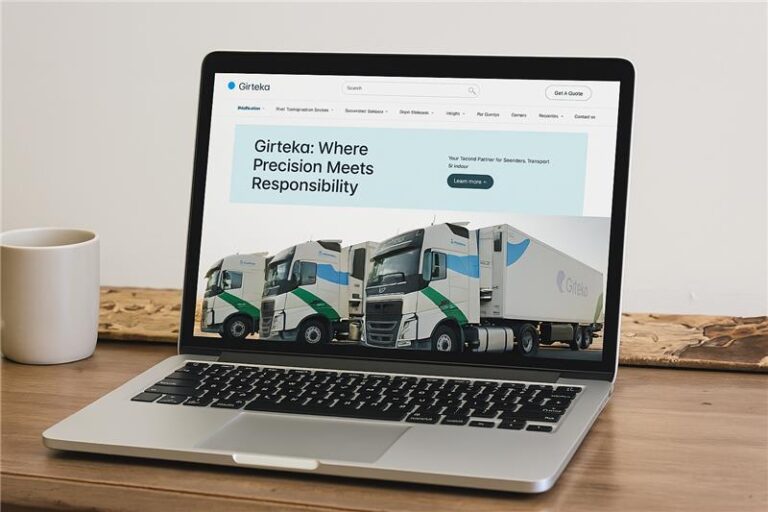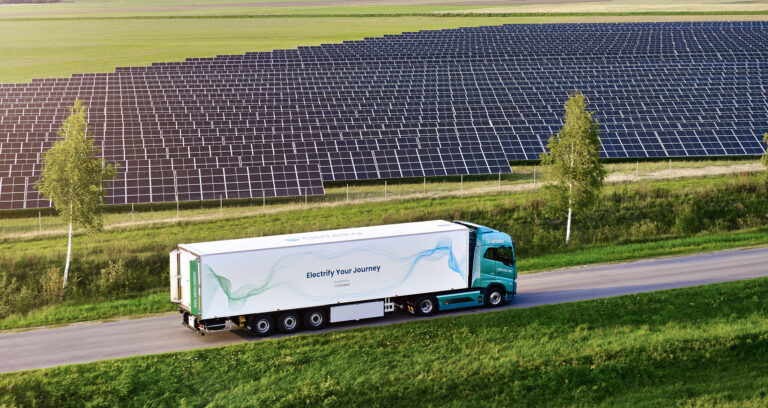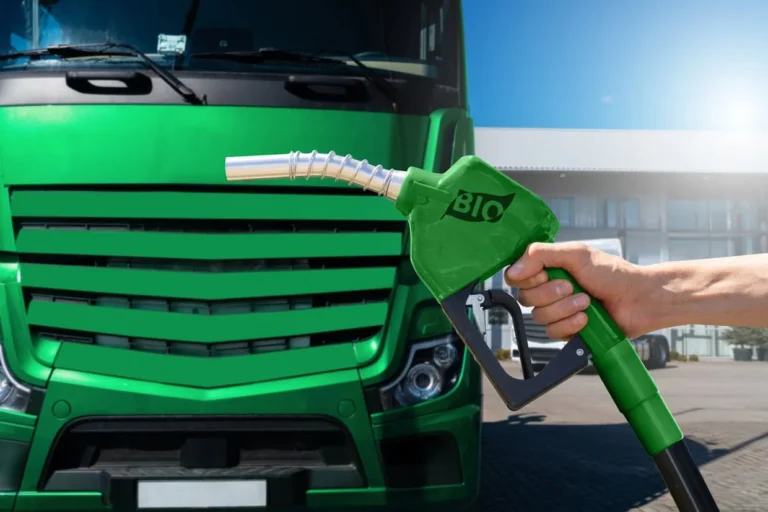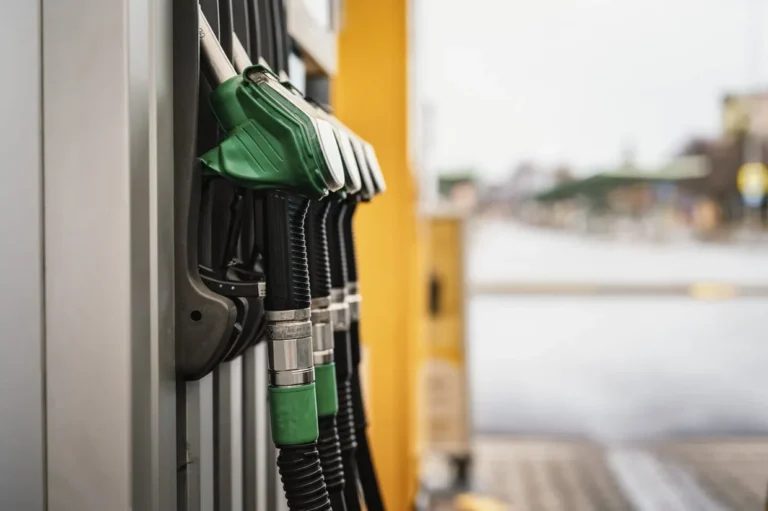Cold-chain logistics is one of the most complex and difficult areas for road freight transport companies to cover. One of the main reasons why, is the fact that the products typically transported in refrigerated trailers have a much shorter shelf life, sometimes of only a couple of days. Speed is not the only solution shippers need, as quality and assurance that the transported items reach customers while still being good to consume are also important, if not more. At the same time, there are plenty of opportunities for carriers to provide cold-chain logistics solutions, especially if those solutions solve the biggest headaches for customers and consumers alike.
Expertise in cold-chain logistics
Cold-chain logistics is not only reserved for food, as the transportation of pharmaceuticals is also a very lucrative sector. Yet that sector is ripe with its own challenges.
In the European Union (EU), transport companies have to obtain certain certifications to even be able to participate in the supply chains of pharma products, such as the Good Distribution Practice (GDP), thus, the expertise required to carry these temperature-sensitive products has to be high.
One of the most recent examples of the boom in cold-chain logistics was the COVID-19 pandemic, which accelerated the growth of pharmaceutical distribution, at the same time, proving how important experience is when working with temperature-sensitive goods.
“To sustain production, minimise wastage, and for vaccines to reach target populations, an efficient and resilient vaccine supply chain which is assisted by temperature monitoring technologies is imperative,” read one study, prepared by several scholars and published in the Journal of Pharmaceutical Policy and Practice in March 2022.
The study also highlighted that in the European Commission (EC) aided CHILL-ON project, “most of the deviations from high-quality standards of perishable goods (vaccines included) occurred during the shipment and transportation process”. The deviation was typically blamed on the “lack of appropriate cold chain equipment, such as cold chain boxes, cold chain trucks, and efficient refrigeration system,” noted the study’s authors.
As such, this example only points out that having an experienced and reliable partner in cold-chain logistics is important, especially when dealing with such a time and health-critical situation as the distribution of vaccines.
While there is no doubt that moving a temperature-sensitive shipment is challenging, naturally, the foundation of a successful shipment for carriers is to make sure that equipment, including trucks and trailers, are well maintained, minimizing the chance of a breakdown on the road, as well as avoiding any deviations in temperature.
Having the fundamentals is not enough to provide a qualitative solution to the market. That is not to say that a fleet of young trucks is not important – this is only the first step. The study continues pointing out that while “data logging does ease the process of monitoring temperatures”, it has to be done efficiently without potentially compromising the product.
“Although financial constraints exist, fortunately in today’s artificial intelligence era, the emergence of sophisticated internet-of-things (IoTs), analytics, mobile and cloud technologies provide the basis for a comprehensive cold chain feedback mechanism,” stated the authors.
Girteka has been implementing Artificial Intelligence (AI) -based solutions in its operations for a plethora of reasons. Providing reliable real-time visibility (RTV) means that clients are not only able to monitor the movement of goods but also plan warehouse capacity accordingly, for example, ensuring that the goods are unloaded as soon as they arrive.
Real-time temperature, which is a different solution, is also being offered, meaning that any deviations can be monitored by the transport manager as well as the client and responded to in a proper manner to avoid damaging products while on the road.
Girteka has successfully passed its fifth annual GDP audit with a 96.45% score in September 2021, certifying that the company is able to carry pharmaceuticals and offer a quality solution to the market. In brief, the GDP certificate means that a company has a GDP-compliant fleet and operating standards that meet the guidelines’ criteria, including real-time temperature monitoring and an SOS center.
Girteka works with 9 out of 10 largest pharmaceutical companies in the world
Carrying food
Pharmaceuticals are not the only temperature sensitive items that are carried on the road. Food, such as fish or fruit, has to reach the consumer following a harvest or a trip out to the sea. That requires custom solutions, especially in the case of short-shelf life produce, which is not always the case with pharmaceuticals.
The EC started the aforementioned CHILL-ON project in July 2006, arguing that the “consumption of chilled and frozen food products within Europe is growing above average”, as food safety and control are concerning to customers.
“With 11 million tons consumed per year, the European Union is the second largest market for chilled and frozen food products,” the EC stated. The main concern was that there were no controls on the treatment of agricultural products and food, and since “more than 70% of food products are traded internationally”, the supply chain was deemed as “complex”.
At the end of the project, the EC hoped to have developed “new technological concepts, their validation and potential scale up with a focus on monitoring, managing and tracing the entire supply chain by a newly developed system called eCHILL-ON”.
Yet the pandemic provided challenges for supply chains, highlighting how important experience and quick reactions to a developing situation are. While road freight transportation was allowed to work to ensure that shelves would still be filled with the most important items, the risks of stoppages on the supply chain were exacerbated throughout the whole pandemic period.
A sudden spike in infections among drivers, for example, could have made food deliveries much more difficult and in the case of fresh produce, could result in a lot of wastage in an already difficult production environment.
Thus, experience and pre-prepared redundancies have become even more important since 2020 and remained high following Russia’s invasion of Ukraine. “As Russia’s ongoing aggression in Ukraine is putting global food supply at risk and European consumers are already experiencing a rise of food prices, many believe that Europe’s food system could be made more resilient against crisis by investing on sustainable local quality production and shortening supply chains,” read a statement by the European Committee of the Regions.
The pandemic will cause long-term changes, at least in the EU. The EC has introduced the farm-to-fork strategy, arguing that “food systems cannot be resilient to crises such as the COVID-19 pandemic if they are not sustainable”. One of the effects of the strategy, according to an article authored by several scholars from the University of Torino, Italy, and published in March 2022, is that supply chains will be shorter, as the EC claimed that “there should be no more than one intermediary between producer and consumer”.
The strategy could result in the elimination of typical peak periods in certain regions. In the context of climate change, food production could move further north, with the south of Europe, for example, experiencing ever-pressing droughts.
Changes in cold supply chains
“Extended growing seasons allows for expansion of agriculture, introduction of crops historically cultivated in warmer regions, and crop diversification,” noted one scholarly article written by 25 authors.
Climate change effects have already negatively impacted the road freight transportation industry in the EU. “Unusual weather patterns have caused early harvests and reduced crop yields in France, Italy, and Spain reducing demand pressure on road freight rates in Q4 2022,” read the Q4 2022 European road freight development benchmark, jointly prepared by Transport Intelligence (TI), Upply, and the International Road Transport Union (IRU).
Looking into the transport rates within the Spanish domestic market, the benchmark points out that the “International Olive Council predicting a 47% year-on-year fall for the production of Spanish Olives due to 2022’s extreme weather”, resulting in less pressure on the average transportation rates in Q1 2023. The trio’s Q1 2023 report is yet to be published.
According to a report by the United Nations (UN), “the negative effects from climate change will cause changes in global weather patterns and cycles that will be both unpredictable and long term”. For example, the fishing industry will “experience significant disruption, with salt water and fresh water fishing at risk”.
“We have to learn how we can adapt the food supply system at a global and regional level in a relatively short amount of time, whilst at the same time, reducing greenhouse gas emissions and our impact upon the environment,” continued the UN.
The organization also pointed out that in Northern Hemisphere countries, such as Scandinavia, “low levels of warming extend the growth duration of mainly perennial crops such as grass pastures, but reduce the duration of the staple annual crops, such as wheat, maize and rice”.
The road freight transport industry will also have to adapt, including the reduction of its emissions, helping the world avoid a full-fledged climate crisis in the upcoming decades. Reducing supply chains’ emissions will continue to be a very important matter in years to come, and logistics companies will have to play a key role in making sure that the transportation of food and/or pharmaceuticals continues to fill the shelves of supermarkets in a sustainable manner.
Throughout its 27-year history, Girteka has built a solid foundation to provide quality cold-chain solutions. After all, the very first truck of the company had a refrigerated trailer, carrying food from and to Lithuania. Building up the experience, listening to customers’ feedback and, consequently, providing the right solutions, has allowed Girteka to continue expanding its refrigerated trailer fleet and transport temperature-sensitive products throughout Europe.
Naturally, as time goes on, the way food or pharmaceuticals are transported will continue to change, in the same way as RTV and real-time monitoring has become the industry norm. But having such a huge fleet of refrigerated trailers, as well as a young fleet of trucks, will make sure that Girteka does not sleep on its laurels and continues working on its ambition to be the obvious first choice for clients across Europe, including with the addition of electric trucks to its fleet in the upcoming few years.
